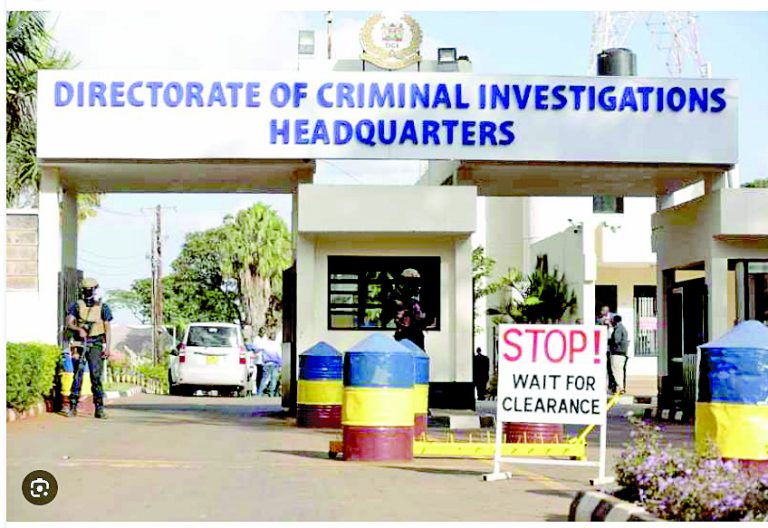Kenya’s investigative agencies little more than paper tigers

When gun-wielding men fired bullets at demonstrators outside Kenya’s Parliament on June 25, 2024, one would have expected our oversight institutions to act swiftly. It was, instead, “BBC Africa Eye” that reconstructed the truth.
Its “Blood Parliament” inquiry examined more than 5,000 photos to determine the shooters.
Meanwhile, our institutions – the Independent Policing Oversight Authority (IPOA), Internal Affairs Unit, Directorate of Criminal Investigations (DCI), and National Police Service Commission – remained silent, relinquishing their constitutional authorities.
IPOA is required to probe police brutality and deaths in custody by upholding Article 244 of the Constitution, whereas the police service should enforce police discipline and integrity.
The Internal Affairs Unit operates under Section 87 of the National Police Service Act and is mandated to handle complaints from the public and fellow officers. Sections 28 and 35 of that Act outline the DCI’s mandate.
But when three Kenyan youths were gunned down at Parliament, the “watchdogs” did not stir.
The BBC found that police officers and a KDF soldier fired the fatal shots. In a statement issued by IPOA, of the 60 deaths registered with them during that period, only 22 investigations have been completed, and only two cases are currently before the courts.
They have cited non-cooperation from both the police officers and witnesses.
Interestingly, the police have consistently denied any involvement in the incidents, a move that the public eye can see as protecting their own.
The KDF itself told the BBC that IPOA has not even asked for permission to investigate its soldiers.
In short, overwhelming evidence goes unused as culprits get away. The BBC outperforms local media in this regard.
Our institutions tacitly admit their inadequacies by opening the door to international journalists to lead the inquiry. Local media did not approach the story with equal vigour.
Remember the case of Baby Samantha Pendo, a two-year-old girl shot dead by police in the 2017 post-election unrest.
Only in October 2024 did the High Court direct the Inspector General of police to arrest a senior officer in that murder.
Lastly, other MPs blamed the BBC for revealing the perpetrators, rather than demanding that the perpetrators be prosecuted.
No committee has requested that the shooters present themselves before it; no commission has looked into the reasons our security officers turned against citizens.
Through the law, Kenyans created investigative agencies so that this kind of tragedy would not occur.
But today, they are no more than paper tigers, watching on as the blood of Gen Z protesters stains Parliament’s steps.
The public is owed better, swifter investigations, open courts, and more truth. But instead, they are given silence and evasions.
Our guardians of justice have failed, and history will remember their deafening silence.
The writer is a lawyer and a human rights advocate.














